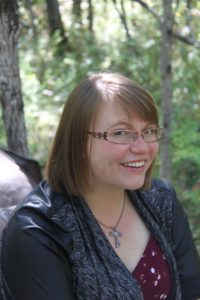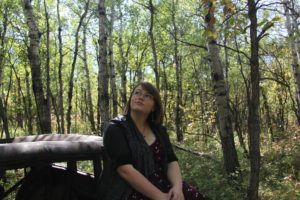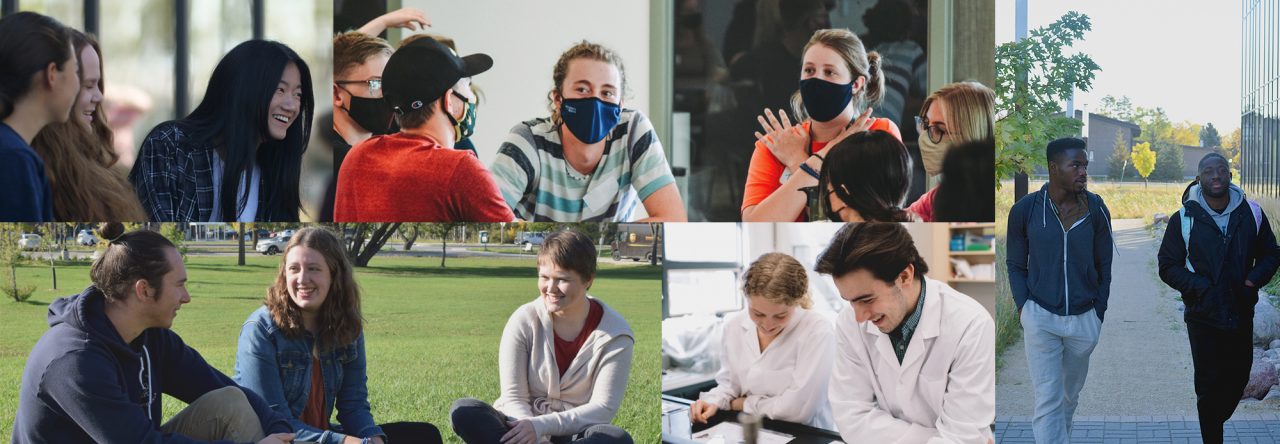Hello! I’m Mackenzie Nicolle, and I hail from the Mennonite Mecca of Rosthern, SK.
I have almost completed a four-year degree in Social Sciences with a minor in communications. When people ask me what that means, because it’s a very nondescript name, I tell them that I have basically created an interdisciplinary degree minus the title. I have primarily focused on four things:
- Psychology, because I am fascinated by how our brains work and how what we think impacts what we do;
- Sociology, because I am fascinated by how society affects us and how we affect society;
- International Development Studies, because I am curious to know how those two other things work in different cultures and contexts, and
- Communications, which helps me to convey all of my thoughts and learnings to others.

Mackenzie Nicolle, just weeks away from completing her 4-year Social Science degree
CMU has given me the opportunity to both learn all of these things theoretically, but also in lived-experiences, and I think those are the things that stick in my mind the most as I reflect on my last four years here. Here are some of the things I learned.
In my Intro Psych class, I often had the same guy sit next to me, and we later became friends. It was fascinating to watch him in class, for where I have a really hard time not being interested in the classes I’m in, as soon as the lights of the lecture hall was turned off, he fell asleep instantly. Every time. I probably poked him three times a class so that he could pay attention. And yet there were times where he would seem to remember details of what Prof. Delmar Epp talked about even when he seemed to be asleep. The human mind is a miraculous thing.
In my Sociology of Religion class, I got to do one of the coolest projects of my whole degree. My team and I went to the Greek Orthodox church across from CMU for a month, and simply analyzed how the church functioned from a sociological perspective. We learned when to sit and when to stand, we learned the rhythm of a liturgy in Greek, and we learned about how hospitable that congregation is as they served us spanakopita in their basement. By contrast, a group of us then went to another church more closely aligned with the Anabaptist faith tradition, and I was shocked by how uncomfortable I felt there. I learned that I felt closer to the rituals of Greek liturgy than I did to alter calls in my own language.
In my time living in residence, I have had the beautiful opportunity to sit across the cafeteria table from many diverse groups of people. Some days I am sitting with students from six different countries, learning about the traditional names of their home communities and their favourite food that their moms used to make. Other times, I’m sitting across from Canadian students who have had life changing experiences in other countries through programs I’ve never heard of. International Development can truly begin at home when you start analyzing your own biases and ways of perceiving the world.
In my current communications course, Christianity and Mass Media, I have spent the past month on a project trying to summarize my thoughts of the past four years by trying to understand why CMU matters. I have had the joy of interviewing six people from this community and listening to their hardships and triumphs.

And over and over again I was told that this place matters. This place invites people to explore their curiosities. This place is a community that values people beyond their productivity. This place allows people to delve into their faith with hard questions, and provides guides to get to the other side. We are learning how to deconstruct what we think about the world, and trying to find new ways of being.
To quote James Magnus Johnston, we are learning about the “Art of the Possible.” And if that’s what I’ve learned through a four-year Social Science degree, I think that’s pretty incredible.
Mackenzie Nicolle is a 4th year Bachelor of Arts student focusing on Social Science

